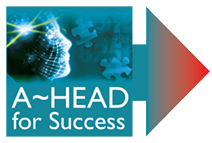 When I started out in business in 1998, success to me was the achievement of a particular goal, be it profit-related, the completion of a project or the acceptance of an idea. And while these are true, they are concerned with the what of success, not the how.
When I started out in business in 1998, success to me was the achievement of a particular goal, be it profit-related, the completion of a project or the acceptance of an idea. And while these are true, they are concerned with the what of success, not the how.
Over the years, I have studied many psychological and business-school concepts. And what is missing for most people is the application of zen principles to business.
For the purpose of this article, the term zen can be considered as the mindful engagement with your work and operation of your business (or your job if you work for someone else). This means being purpose-ful about what you are doing and why, from a macro perspective and a micro perspective.
So, to begin with, why do you do what you do? What purpose does your business (or job) fulfil? I am reminded of an old parable about a man who visited a city many hundreds of years ago. He came across two men labouring under the noonday sun. He asked the first what he is doing “Oh, I am just doing some labouring. It is hard work and I will not be finished for hours.” He asked the same question to the second man who responded “I am helping to build a cathedral”. This story beautifully describes the purpose of their work. One saw it is a job, a means to an end, something he had to endure each day. The second man saw it as a vocation and put his heart and soul into each stone he laid. Which man was likely to have been more productive? Which man happier? Which would have inspired others? And which went home with a sense of achievement?
Are you clear about what your business is there to achieve in terms of a higher purpose? If you are in business purely for money, as a lot of people are, what is the higher purpose that money is there to achieve? For example, let’s take a cleaning company. Not the most glamorous of businesses and fraught with day to day problems. It would be easy to get bogged down in the nitty gritty of the issues around difficult customers and unreliable staff. So, what is the higher purpose? This would be personal to everybody but it may be to provide a beautiful environment for your clients to live or work. Or it may be to provide work and career opportunities for employees who have had difficulty holding down a job in the past. Or, if you really have no passion for the work at all, it may be to provide a good education for your children so that they can be free to make more fulfilling career and life choices for themselves.
When you have an over-riding purpose, it can carry you through the most challenging of times. It can pull you out of the mire of the day to day and into a higher, more creative, more empowered mindset. Which is likely to create more profit for you?
At a micro level, it is about being purpose-ful in the moment. This means applying yourself 100% to whatever it is you are doing, fully absorbed. The ability to multi-task is seen as a skill and even a virtue. It is something I have been proud to call a skill. And it is. But it is also a weakness. I noticed myself yesterday doing something and then stopping it to start something else and then interrupting myself doing that to do yet something else. I realised that I have become so “skilled” at multi-tasking and responding to requests and interruptions that I now interrupt myself! So I have to remind myself and, when I do, there is a flow to my work. A peacefulness, a quiet productivity which is enriching and rewarding. Of course there are times when I have to multi-task and over the years of my career I have had to do this thousands of times, shifting gear at a moment’s notice, which is why it is a difficult habit to break. However, the effort of stopping and starting and stopping and starting again reduces productivity and increases stress. It is important to be able to do it but not to make it a way of life.
True multi-tasking is a myth as usually you are simply stopping and starting, picking up and putting down. I recently saw a cartoon about women being great multi-taskers. It showed a woman flying through the air with a duster in one hand to clean the ceilings and pushing a vacuum with the other to clean the floors. But in reality it is really very difficult to apply yourself fully to more than one task at once. Sure you can wait on the phone for someone to pick up while you file something away but in reality, you are almost always only doing one thing at once. Doing that one thing with a sense of purpose can bring a richness to the most mundane of tasks. Most people hate filing but if you do your filing with an intention to create order in your environment this can transform the experience and it can even feel meditative. In addition, thinking about the piece of work that paper represents with an attitude of gratitude and appreciation can be equally rewarding. Certainly better than attacking the filing with a feeling of resentment and obligation.
So, the concept of applying yourself 100% to whatever you are doing in the moment, thinking about the purpose of that task, brings with it a higher level of clarity and productivity, a calmer demeanour and a much nicer person to take home to the family! This brings with it greater financial profit but also an intrinsic profit which is priceless.
And last, but by no means least remember the principles of karma – that you reap what you sow. So, be kind in your interactions and you will be richly rewarded with deeper and more trusting relationships as well as greater loyalty with your associates, your employees and your clients.
If you would like to learn more about how mindfulness can enhance your productivity and your profits, call me on 0845 130 0854.
On this note we end my
A-Z of Business blogs, which I hope have been productive for you. As we enter the new year, I hope that your 2014 business plans are clear – your company goals, business values, products and USP…and that you feel personally prepared to take on the year ahead, manage your time effectively, serve your customers and motivate your staff. For any additional support, do contact me at
tricia@pw-consulting.co.uk. I wish you a very happy new year and a successful 2014!
© Tricia Woolfrey 2014
About Tricia Woolfrey – click HERE to find out about the author.






 They say that all the best people get support to get them to the top and to keep them there. It is a sign of vision, strength, and drive to want to take your performance and productivity seriously enough to invest in yourself and your business in this way. But how do you know what kind of support you need?
They say that all the best people get support to get them to the top and to keep them there. It is a sign of vision, strength, and drive to want to take your performance and productivity seriously enough to invest in yourself and your business in this way. But how do you know what kind of support you need?  When I started out in business in 1998, success to me was the achievement of a particular goal, be it profit-related, the completion of a project or the acceptance of an idea. And while these are true, they are concerned with the what of success, not the how.
When I started out in business in 1998, success to me was the achievement of a particular goal, be it profit-related, the completion of a project or the acceptance of an idea. And while these are true, they are concerned with the what of success, not the how. How do you relate to time? Do you just see the future ahead of you, cluttered with actions and goals which threaten to suffocate you? Are you in the present moment, having fun but not getting much done? Are you stuck in the past with no idea how to develop the insight, motivation or courage to move forward? Or are you able to see time as a continuum with the past, present and future laid out in front of you?
How do you relate to time? Do you just see the future ahead of you, cluttered with actions and goals which threaten to suffocate you? Are you in the present moment, having fun but not getting much done? Are you stuck in the past with no idea how to develop the insight, motivation or courage to move forward? Or are you able to see time as a continuum with the past, present and future laid out in front of you? One of the things which hinders your ability to achieve results, to maximise performance and to increase productivity, is a lack of clarity around goals. Goals help you establish priorities and are the foundation for actions which lead to success. But they aren’t enough on their own. In this article, I will share with you how to set goals which move you forward, and what else you need to do to make it all happen.
One of the things which hinders your ability to achieve results, to maximise performance and to increase productivity, is a lack of clarity around goals. Goals help you establish priorities and are the foundation for actions which lead to success. But they aren’t enough on their own. In this article, I will share with you how to set goals which move you forward, and what else you need to do to make it all happen.